|
Arts Editor: Christopher George . James Earley’s paintings are as close to photographs as you can get. One of the world’s leading Hyperrealism artists. His works challenge the society and capitalist culture we live in, where so much suffering and persecution towards the human race is rampant on our doorsteps. Acclaimed for his talent in portraying the gritty reality of the human condition, that is so often overlooked in the art market, Earley’s works are compelling and emotive, yet portray a humanistic view with compassion whilst dealing with topics of poverty, war and injustice. Raw emotions are layered in visual terms, with this one man activist on a mission to shine a very bright light on the damage being directed towards the human race. We gained access to Earey’s mind for a frank and honest interview about the man, his beliefs and why it is so important to keep activism moving against the damaging changes we are witnessing. SO You have an extreme gift for visual representation of the truth. Your paintings are so close to photography it’s pretty astounding. How would you explain this talent? JE I found childhood was a real challenge. I was not good at being a child. Complexity, anxiety, and depression were woven into my core fabric, and it was only art that allowed me to break free from these demons, a freedom that would last just as long as I was drawing or painting. I often and still do doubt myself, and I guess it is this self doubt that guided me towards realism art. I would often see abstract art and I would marvel at and admire the courage that someone would have in creating those works and then showing them to the public, knowing full well that they would be open to all sorts of criticism, such as “my child could do better than that”. I was amazed at the courage that artists had by putting themselves in the firing line. I would produce art that was measurable; realism is measurable into how closely it looked like the real image, the real person. It was this self doubt that sent me into realism, I wouldn’t change anything. I am happy I took that path. My confidence has broken through in my art, and I find realism is the perfect and most powerful gun for the bullets of my message to hit so many different people. SO You have always been an artist, but for many years you turned your back on art. Was this a society pressure to generalise yourself in this world. And tell me about the background noise of art resonating within you while you abandoned it. JE My childhood was difficult. I was odd, strange and different. I preferred my own company, I still do. I had a lot of publicity as a child because of my artistic ability, and a spotlight on me regarding it that I hated. Art was for me an escape yet it was now forcing me back into the world that I was escaping from. I felt like an animal on display in a zoo. I wanted to hide. So I tried to hide under normality, and studied to get a normal job and I went into Law. Every night I would go to bed knowing that I had wasted a day. I truly believe that everyone is given a talent, a gift, but most people do not have the courage to try and find it. I had the gift in front of me, I did not have to find it yet I turned my back on that gift. After twenty years of knowing that I was lying every second of the day I had a breakdown. I completely collapsed and a week later I decided with my family to sell our house and move to the south of France to be an artist. So one week after my breakdown we were living in the south of France. I had not picked up a paint brush for twenty years and I had never been to France before that. SO That's an incredible journey, and one that is so very unique, but also one that is so common with many people experiencing a ‘Nervous breakdown, Spiritual awakening, Midlife crisis, Middle passage’. There are many terms that can go to phrase this crucially important part of human growth. And each is unique to the individual person that experiences it. Where would you place yourself in this field? JE I do not know what to call it. All I know is that I woke up one day a different person. Leading up to this I was extremely busy. The week after I got back from Auschwitz I was curating an exhibition at a gallery in London for the very first time as I had started a business representing artists. I was running the London Marathon that weekend, and the day before that I was abseiling down the Spinnaker tower in Portsmouth for charity. I was doing all this whilst doing my normal job, which at the time was involved in a business take-over. Most people feel that I was doing too much, but for me that was not the case. The problem was I was doing what I was not meant to be doing. I was working in a profession that I did not fit into, and I had to constantly reshape myself to fit into it. I just feel that with so much going on, and with a trip to Auschwitz which displayed in a unique and frighteningly direct way the fragility of life, I suddenly had my eyes forced open. I saw a crossroads and a path to take me where I could be myself and stop the continuous struggle going on in my mind. This was an awakening I suppose, but initially I went through a huge sense of trauma trying to justify the last few years of my life. SO Your works generate a lot around social issues. Do you college visuals together from different sources, or are you working from your mind and the influence of news items. If you can tell us your work process. JE I am a very emotional person. My emotions are extreme. I can be very very angry and I often cry when I paint. I often feel when I am outside the studio like I am in a dodgem car hitting and smashing into so many issues and emotions. I would see a homeless man begging, I would hear of the racism in the world, the bombings in Iraq, Jordan and Syria. I would feel a ball of anger in me getting bigger and bigger like a balloon. I would need to express this anger in a sanitary way such as talking, but because I am not particularly good at that I would have to pour this emotion onto a canvas. I would imagine a scene and draw it. I would know straight away what the message I wanted to portray was, and I would refer to photos as well as my imagination to help build up the painting. SO What were your early works inspired by as a youngster- did they refer to social issues? JE I think that the first portrait I painted was a homeless person. As a child I was gifted with what every child is gifted with and that is honesty, purity, and empathy, and I could not understand why someone was poor and could not afford to eat and have shelter, yet other people seemed to be drowning in their wealth. Obviously as you get older the master teacher that is capitalism tells you that this is perfectly normal and correct. I had to paint things that were strange and odd to me. Because I was a child this concept of inequality was strange. SO In your referencing and research, what artists have over the years influenced you and why. JE When I visited galleries as a child the work that I was drawn to were works that told a story, often the characters in this story would be living on the very edge of a cliff and could fall and die at any moment. It was this raw emotion, this anger that seems to make the painting breathe and scream, and this resonated with me. I would be drawn to the works of Caravaggio who would paint images that would grab hold of you and shake you. He was sticking two fingers up at the art world, that felt paintings should be aesthetically pleasing. I really admire him for that. SO Apart from artists, what other influences would you say feed into your works and give meaning to your process? JE I really admire those that speak from their heart, those that do not care about class or colour and would keep pushing forward even as it got more and more uncomfortable. I really admire Martin Luther King Junior and all those in the US civil rights movement. I admire music artists such as Joe Strummer of The Clash who I believe wrote some of the most powerful lyrics about the class structure here in the UK. I would strongly recommend listening to “Know Your Rights” and “Something about England” by ‘The Clash’ which are modern masterpieces. I also admire Mat Johnson of ‘The The’ who spoke of imperialism and inequality. SO You’re not influenced by the flatness of fame, power and wealth which is honourable during this time of celebrity megalomania. But is there a part of you that would also like to take on such processes of portraying fame and know identity in say a more traditional portraiture style. JE The word “Fame” does not mean anything to me. I am not really impressed more by someone just because they have more followers on social media. I am intrigued by everyone. I feel that everyone has a story and if I am affected by that story in an emotional way then I would love to paint that person. I would paint the Queen, although I would not bow down to her, and I would equally like to paint any of her staff, as long as when I take a deep look into their eyes I could see an emotion that I could cling to. Like clinging to a buoy in the sea as the waves crash around it. SO You have a poetic tragedy about yourself that is both beautiful and harrowing. What would your response be to that? JE I have three children. Having these three children was the hardest thing that me and my wife Julia went through. We did not know it at the time but my wife had a condition that meant she would go into labour prematurely, normally at about 24 weeks. Our first daughter Matilda was born at 24 weeks but despite efforts of doctors and nurses in trying to resuscitate her, she died just after being born. We buried her in a tiny coffin and my world was black and dark after that. Not knowing we had a problem, not knowing why this happened we were excited but a little scared when my wife became pregnant again. Unfortunately she went into labour at 23 weeks. Our daughter Jemima was born, her tiny heart was beating and so she was rushed into intensive care and put onto a ventilator. She was in hospital for 7 months. We were constantly told she would not make it. Her heart, lungs and kidneys all failed at some point but she kept fighting. We lived on the edge for seven months. At night every time the phone would ring we feared the worse. Eventually Jemima came out of hospital and is now a healthy 16 year old girl. Once my wife was diagnosed we had two more children all healthy. I truly believe from this experience that this was meant to happen. I believe Matilda is our angel and looks down on us. She was meant to be an angel and If she had not been born so early and sadly died we would not have had Jemima just a few months later. I can not describe the pain and emotion of this period, I could write a book about it but going through this tragedy and then seeing something amazing come out of it grows a seed of optimism that explodes out of the ground into a rock solid tree. SO How is your workspace, if you can talk us through that environment. And how is your work schedule, how do you keep active with it. Are you constantly producing works? JE My workspace is a bit like me; untidy, hectic but direct. I normally have three paintings on the go at any one time. When you work with oil paints as I do, the problem is the drying time. So I would normally work on the underpainting of one painting, and whilst this is drying which can take about two weeks, I can then work on other paintings. There are hundreds of brushes lying around together with plates covered with dry paint which grow on them like stalagmites. SO What is a break for you away from art and social issues? JE I am blessed to have three healthy children and they inspire me with their enthusiasm for life. I don't really have a break from my art. I am always thinking about my painting and I normally spend 10 hours a day in the studio 6 days a week. I really can not stop. I feel that this is my reason to be alive, I also feel that I could die at any moment, so I have to get my message across, I really have to. SO What gives you hope? JE The youth of today give me hope. The young who followed Jeremy Corbyn here in the UK, and the young in America who supported heroically Bernie Sanders in the democratic candidate race before both leaders were eventually beaten, smothered and strangled by the rich and powerful who welcomed the status quo and saw any movement who wanted to address these inequalities as a threat to their bank balance. SO Yes I totally agree with you on Corbyn and Sanders. I was devastated by the level of corruption from the press and corporation, but more so what I feel is the stupidity of the general public for actually believing the manufactured press. That finished my political activism, I really felt there wasn’t any point in engaging in a political system that is pretty much sewn up, and merely a staged performance. What advice would you give to those who have lost a belief in the political system and any potential for positive change? JE The odds are all stacked against us. A few powerful people call the shots, but this is no reason to accept it. In fact it should inspire you to fight this injustice. Martin Luther King Junior did not just accept it. He built a huge movement from nothing without using violence. He demanded people to have a deep conversation with their heart, he built a huge following that changed the world. Okay there is still a huge level of racism in the US. but when a country is stolen from its natives as the US was and built on a system of slavery, you can see the odds were stacked against the civil rights movement probably more than they are stacked against us today. Martin Luther King was inspired by Gandhi who also used the power of words and non violence to change the world. I live by the principal that if I know something is wrong and I see something is wrong there is no Fucking way I am going to look away. SO Mental health issues are a huge problem, especially in the male population. What thoughts do you have on mental health and how we can independently work towards a more peaceful existence? JE Mental health is the biggest problem facing humanity today. In the recent past I have known children of close friends of mine commit suicide, and I have spoken to hundreds of homeless who are tortured by mental health, and often see a cold wet pavement as an escape. I see children look on social media and try to compare their life with the rich and famous and then label themselves as “failures”. I firmly believe that as we live in an environment whereby someone is valued based on their bank balance, and that this pursuit of wealth is relentless and ruthless, then mental health issues will only get worse. I believe that empathy fades away in this march for material things. I guess the only way mental health will improve in an economy that rewards this pursuit with huge inequality, is if there is money in helping people with mental health issues. But of course as there is no real financial gain in helping someone with these problems, then the wheel turns in the same direction. SO Tell us what music if any you listen to in the studio. And what music was playing the past 2 hours you were working. JE I love listening to music. I really try to understand the lyrics. I listen to The The, The Jam, The Verve and The Clash in my studio. Lyrics can be the spark that ignites a painting for me. I recently heard the lyrics of a song by The The called “Armageddon days are Here (again)” which stated ”If the real Jesus Christ were to stand up today he would be gunned down cold by the CIA”. I intend to create a painting about this. SO What items do you have coming up in the next few months. JE My plans are a little up in the air at the moment. I should have had my first solo show in Chicago in March and in New York in May of this year, and I am hoping that these will be postponed until November. My main project was to create seven portraits for the charity. “The Innocence Project” which is a US charity whose mission is to exonerate individuals who it claims have been wrongly convicted through the use of DNA testing, and reforming the criminal justice system to prevent future injustice. I will be spending time with people who have been on death row in some circumstances, getting to know them and eventually painting their portraits. These portraits I hope would be on display in a gallery in London and one in New York with all sale proceeds going to the charity. When I sell any painting now I donate some of the proceeds to the Innocence Project as well as the homeless charity “New Hope” who are based in Watford. Website. www.jamesearleyartist.com Facebook @jamesearleyartist.co.uk Instagram @jamesearleyartstudio Twitter @jearleyartist Charities. the innocence project
0 Comments
Leave a Reply. |
sø•artyCreative minds produce in all mediums. Displaying some of the finest art items edited to suit a refined self and lifestyle Archives
April 2024
|
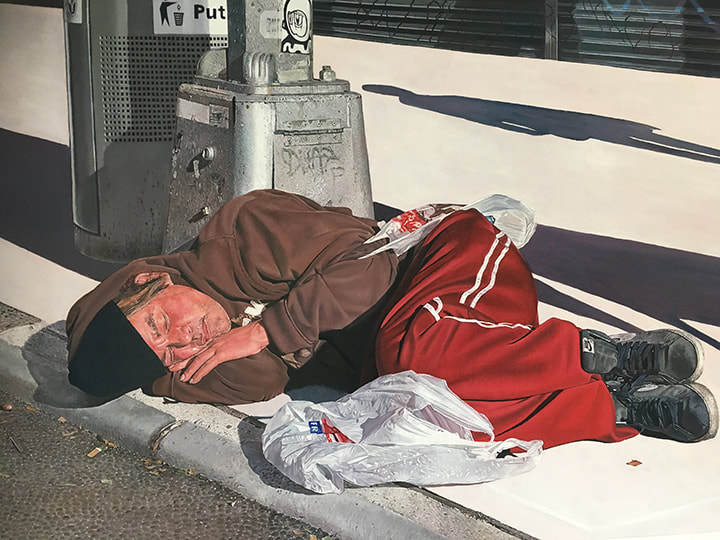
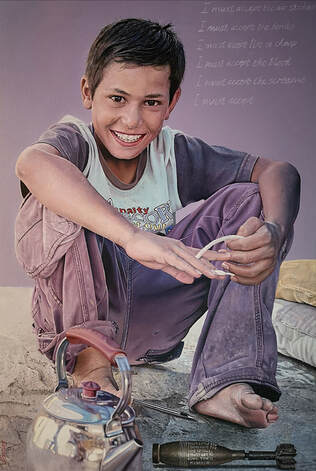
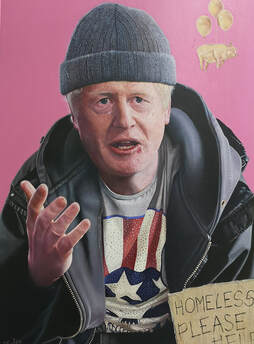
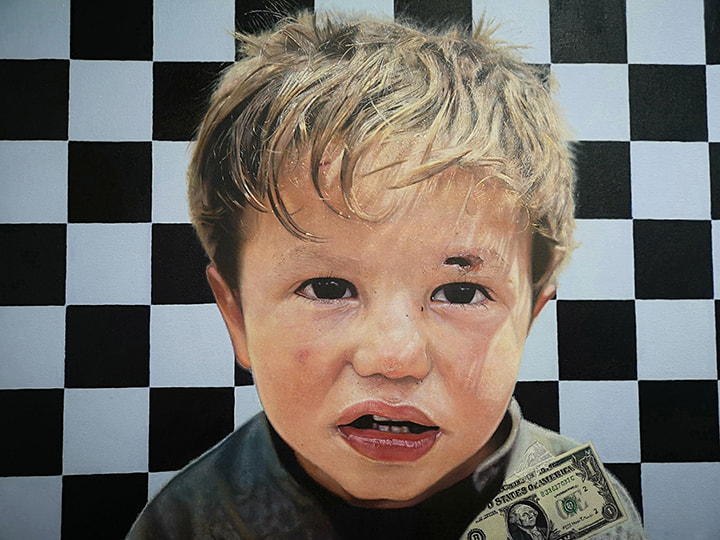
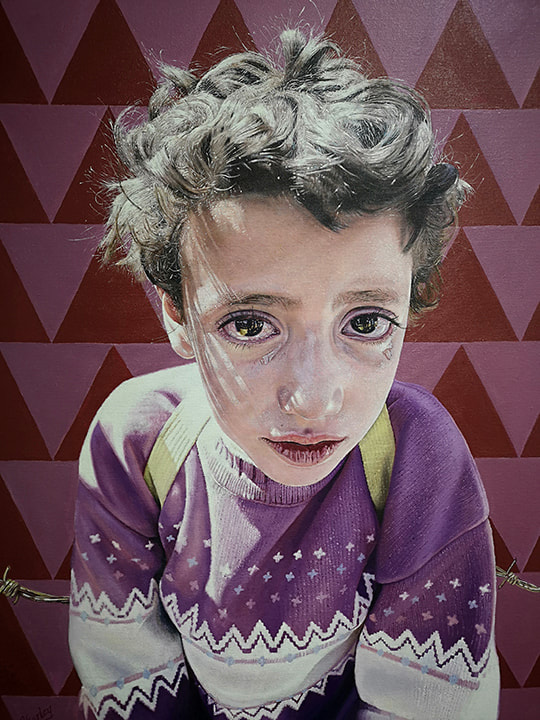
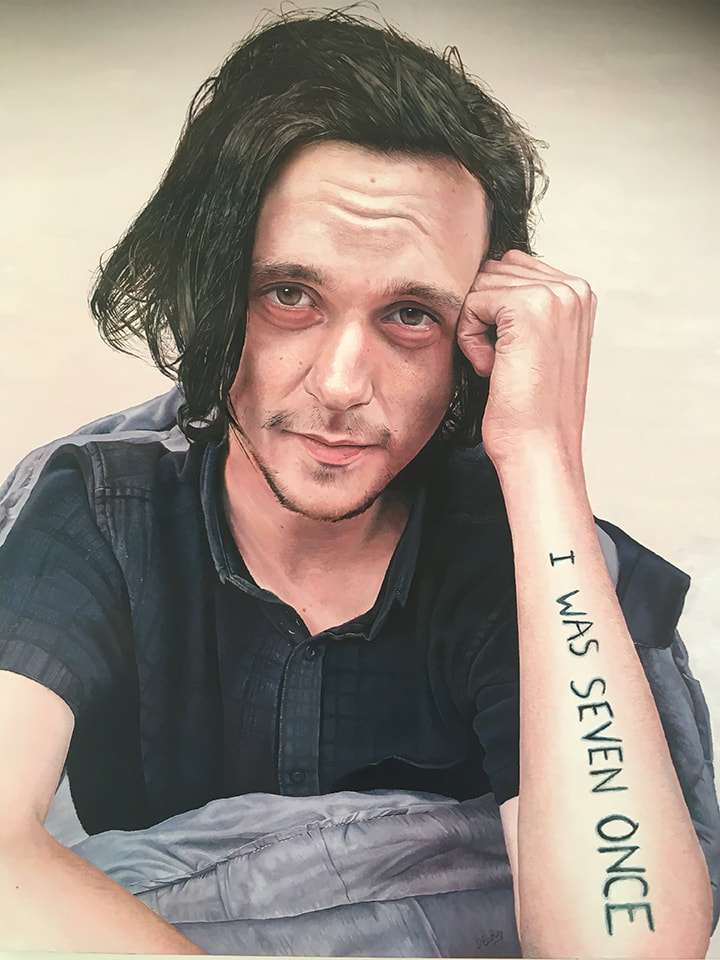
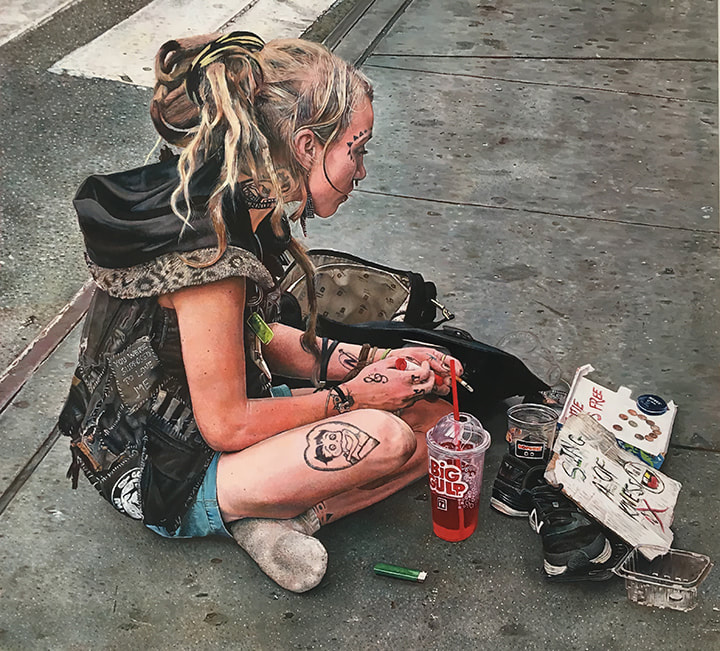
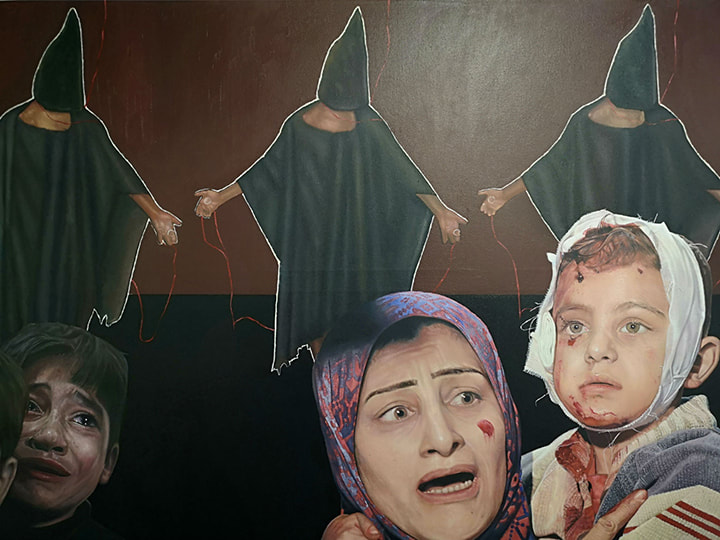
 RSS Feed
RSS Feed